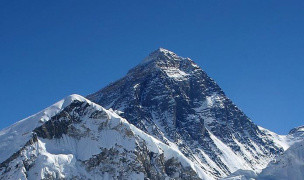 21 Terms
21 TermsHome > Industry/Domain > Astronomy > Planetary science
Planetary science
The scientific study of planets including Earth, moons, and planetary systems of the Solar System in particular and the processes that form them.
Industry: Astronomy
Add a new termContributors in Planetary science
Planetary science
cosmochemistry
Astronomy; Planetary science
Interdisciplinary science that overlaps with geochemistry, geology, astronomy, astrophysics, and geophysics to discover the materials and fundamental processes in the solar nebula and our Solar ...
sputtering
Astronomy; Planetary science
In the context of space weathering on the surfaces of airless planetary bodies, sputtering is the process in which atoms on the surface are knocked free by high-speed atomic particles in the solar ...
andesite
Astronomy; Planetary science
Dark-colored, fine-grained extrusive igneous rock with about 52 to 63 weight percent silica (SiO 2 ). Andesite consists mainly of plagioclase and one or more mafic minerals. The word andesite is ...
supernova (Type II)
Astronomy; Planetary science
An enormously bright, energetic, catastrophic explosion that occurs at the end of the lifetime of a massive star whose core collapses. A star must have at least nine times the mass of the Sun to ...
fall
Astronomy; Planetary science
A meteorite that was observed as it fell through Earth's atmosphere and was retrieved. Since most falls are collected soon after hitting the ground, these meteorites are not badly degraded or ...
perihelion
Astronomy; Planetary science
Point in the elliptical orbit of a comet about the Sun in which it passes closest to the Sun.
regolith
Astronomy; Planetary science
General term referring to the layers of fragmental and loose, incoherent, or unconsolidated rock, mineral, and glass fragments of any origin (residual or transported) that accumulate on the surface. ...
Featured blossaries
HalimRosyid
0
Terms
12
Blossaries
0
Followers
Famous Musicians Named John
 21 Terms
21 Terms
Bagar
0
Terms
64
Blossaries
6
Followers
The most dangerous mountains in the world
 8 Terms
8 Terms
